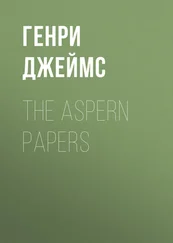Foreign policy is always a concern for Jersey. Republicans and Democrats alike are grist for Jersey’s mill, for US foreign policy is at the service of the corporations in command of what had become in less than two decades the most sensitive, most vital, most essential commodity in the world: oil.
What is good for Jersey is sine qua non to US foreign policy.
The President of Standard Oil of New Jersey was Walter C Teagle, and had been so since 1917. He leads the five man Executive Committee. Flanking the Board was the Coordination Committee, composed of the heads of various technical and economic departments. This committee sifted the facts and figures and prepared decision making options for the Executive Board’s consideration.
Ed Guthrie was a member of the Coordination Committee. His speciality was the marketing of refined products. This morning’s agenda was Europe, to wit, Spain and Germany. With the advent of a new fully blown civil war in Spain and Germany’s overt assistance, a discussion and options for consideration were required about supply of crude oil, products and in particular aviation fuel to the parties concerned.
Jersey’s own intelligence sources had reported this conflagration a’comin’. The sudden quotation request received last month through Jersey’s subsidiary in Berlin for fuel oil, heavy duty lubricants, aviation gas and diesel orders for a Cadiz delivery, and Franco’s similar request, but on credit, was frankly a slam-dunk confirmation.
The topic for today’s meeting was to review, again, the legal issues. A belt and braces job, as one of the lawyers who had spent some legal time in England examining the historic differences of tort law with reference to ‘representation’ and ‘warranty’ commented. A decision had been taken last month that product supply be approved. Wheels and ocean oil tankers were in motion.
Ed had the meeting this morning top heavy with legal beagles, experts in United States and the two aforementioned countries’ trade laws legislation. He had crucially invited an outsider; a senior partner in a Washington law firm held on a generous retainer, and an acknowledged expert on international treaties including the Versailles Treaty of 1919 with relevant amendments and especially the recently passed US Neutrality Act, not to forget the still-in-force Trade with the Enemy Act of 1917. Ed therefore had in front of him an impressive display of legal knowledge, exemplified by a number of heavy-black-spectacled suits staring at him intently and intelligently from both sides of the meeting room table, yellow legal pads open, pens at the ready: waiting for the opening statement.
Jersey, through its various subsidiary companies, had been supplier of crude oil and gasoline products to both Spain and Germany for decades. It would be prudent for this relationship to continue. Spain had no commercial gasoline deposits of its own; it had to import all its needs.
‘A growing economy due to the growth in industry and especially transportation necessitates growth in gasoline refined product requirement or, for Jersey, read sales. Gentlemen, we can substitute civil war for a growing economy, the need for gasoline and lube oil …’ Edward Guthrie was in his opening statement.
And he continued.
‘… so Spain is pretty easy to define. Do we decide to service the government in Madrid which is now controlled by the communists, or the Army which is trying to bring stability and order to the country? Now that Germany has entered the conflict on the side of Franco, we need to kick around the legalities of our supply to a country involved indirectly in a civil war. Our Neutrality Act still kinda niggles me.’
Walter Schronberg, the senior partner with Shronberg, Wilts and Stroner of K Street, Washington DC, cleared his throat, and Ed, taking this polite cue, pointed his pencil at Walt. The senior partner gave a precis of the Neutrality Act of 1935 and its fourteen month extension passed by Congress in February 1936.
‘In essence, Congress has imposed a general embargo on trading in arms and war materials with all parties in a war.’ Walt held up the palm of his hand up to a young upstart ready to ask the predictable; ‘Define war.’ Let me finish youngster, the hand motion said. ‘The Act also forbids all loans and credits to the belligerents. You now have the fundamentals,’ he turned from addressing Ed to the young upstart, ‘open to interpretation, as my distinguished friend across the table was just about to suggest.’ The young upstart with a summa cum laude degree from Stanford Law School went immediately red in the face and looked down at his yellow pad. He doodled on his yellow legal pad for the rest of the meeting.
The others entered the legal argument arena. One after another, cross-table exchanges of views, suggestions, definitions, recent to ancient court precedents, interpretations and the inevitable – it goes with the territory – one upmanship. Voices raised, one brought English Law into play with the mention of mens rea, where a crime consists of both a mental and physical element. Mens rea, in latin, is a person’s awareness of the fact that his or her conduct is criminal and is the mental bit, and rectus reus, the criminal act itself, is the physical element … That’s it, concluded Ed, enough. He realised unless he took a grip this was turning into a college law students debate. He had mentally satisfied himself that one could, if one wanted to, drive a stagecoach though this Act, as written, an opinion that a handsomely commissioned Professor from Harvard Law School had also concluded. Ed was also cognisant of recent information received; five Texaco oil tankers were on their way from Antwerp to fill up Franco. Business, as a wise man once said, is business.
Ed asked if Congress, in the sighting of ominous smoke signals over Europe, could decide to tighten up the Neutrality Act? Inject ‘civil war’ into the ‘war’ definition, and define more precisely the meaning of ‘supply of war materials’?
Walt had been silent throughout the debate. He had nothing to contribute. His expensive legal brain was resting. His reply to Edward Guthrie, Coordination Committee member of the biggest corporation in the world, was as measured as it was succinct: ‘Well, Congress could tighten it up of course, but only if Jersey wanted it to.’
So ended the meeting. Conclusion as predicted: Jersey to continue supply of refined gasoline products to Franco’s new Spain, as it was doing to Hitler’s Germany; company lawyers to continue coordinating with the good offices of Walt Schronberg, who lobbied Congress on its behalf.
Ed ambled back to his corner office overlooking the famous thoroughfare that was Broadway; his secretary stopped him at his door and handed him a telex message. It was from Berlin. It informed Standard Oil of New Jersey that Torkid Rieber, Chairman of the Texas Oil Company, known to one and all as Texaco, had just commissioned the building of several oil tankers from the Deutsche Werft shipyards in Hamburg in return for crude oil.
‘Goddamn!’ was the exclamation from the evangelical presbyterian, and he reached for one of his desk telephones.
‘Yes. That’s right,’ said Ed to someone on the twelfth floor, ‘Rieber is in the bartering business. Oil for new-build tankers. Good way to get round any potential Neutrality Act issues.’ He listened intently to the advice and instructions from the executive floor.
‘Yes, I agree, good idea,’ he finally replied and put down the telephone. Ed swivelled his chair to face the window, and looked out to the harbour and Ellis Island and the Statue of Liberty. He was thinking.
Конец ознакомительного фрагмента.
Текст предоставлен ООО «ЛитРес».
Читать дальше












